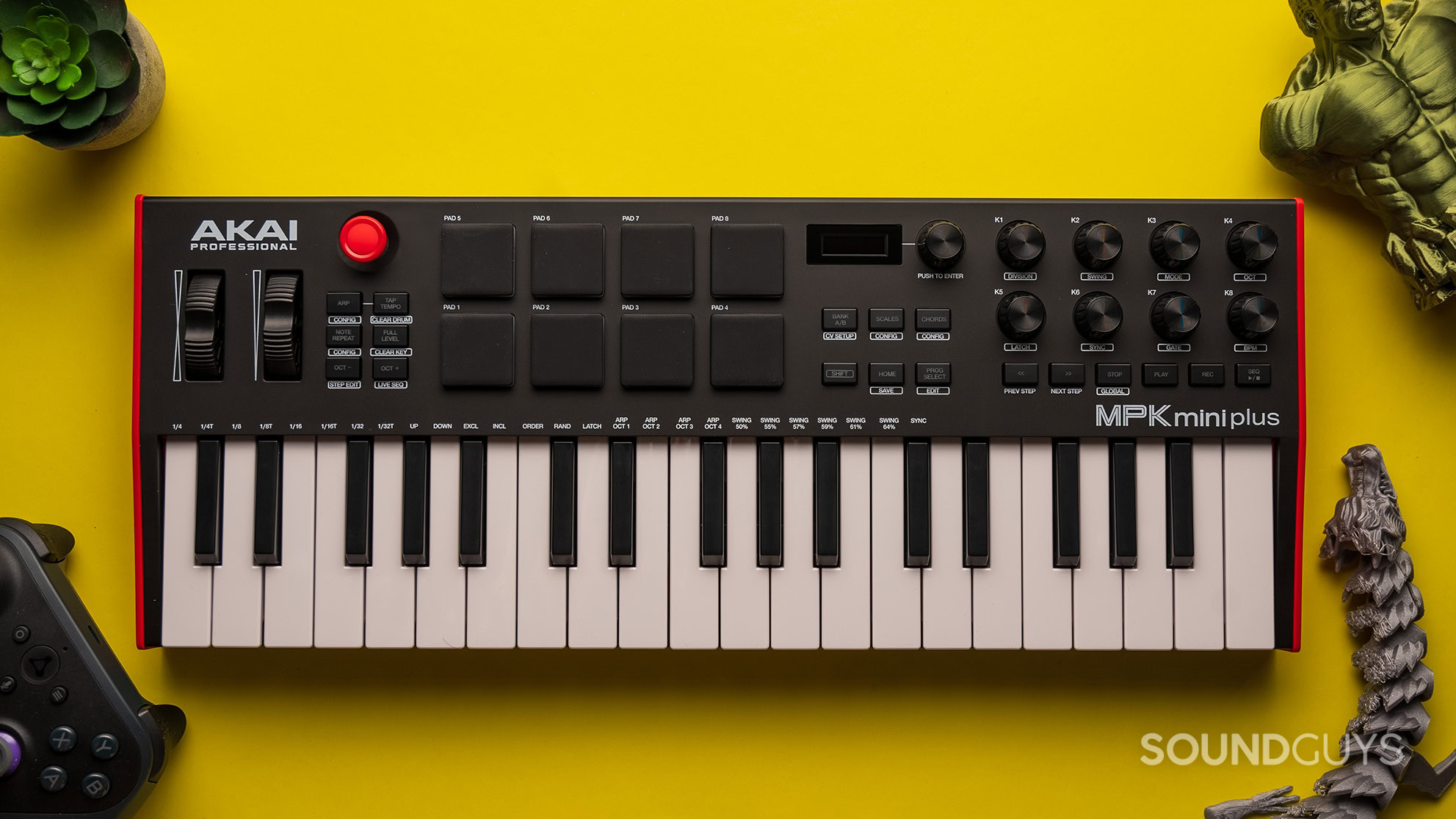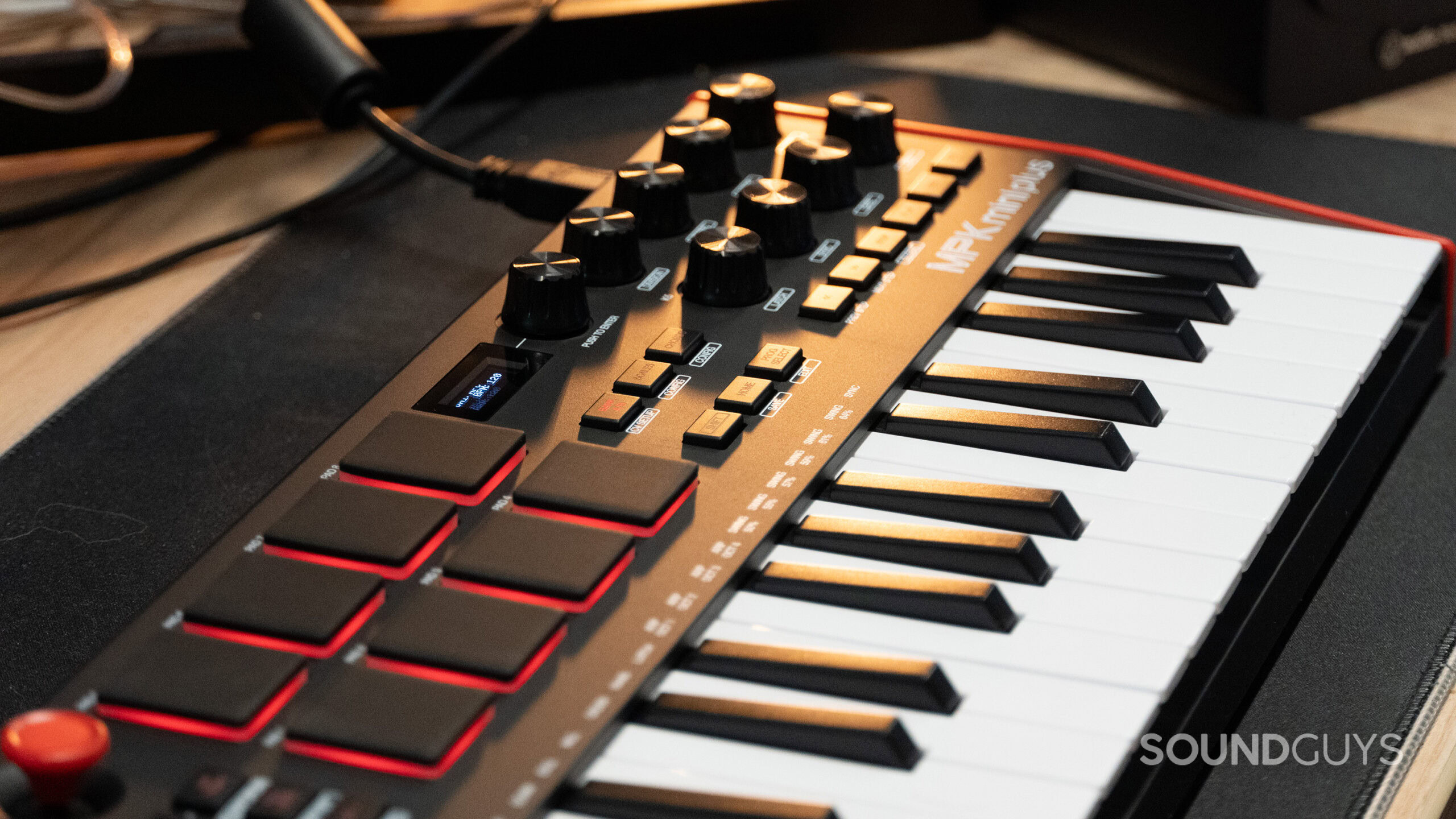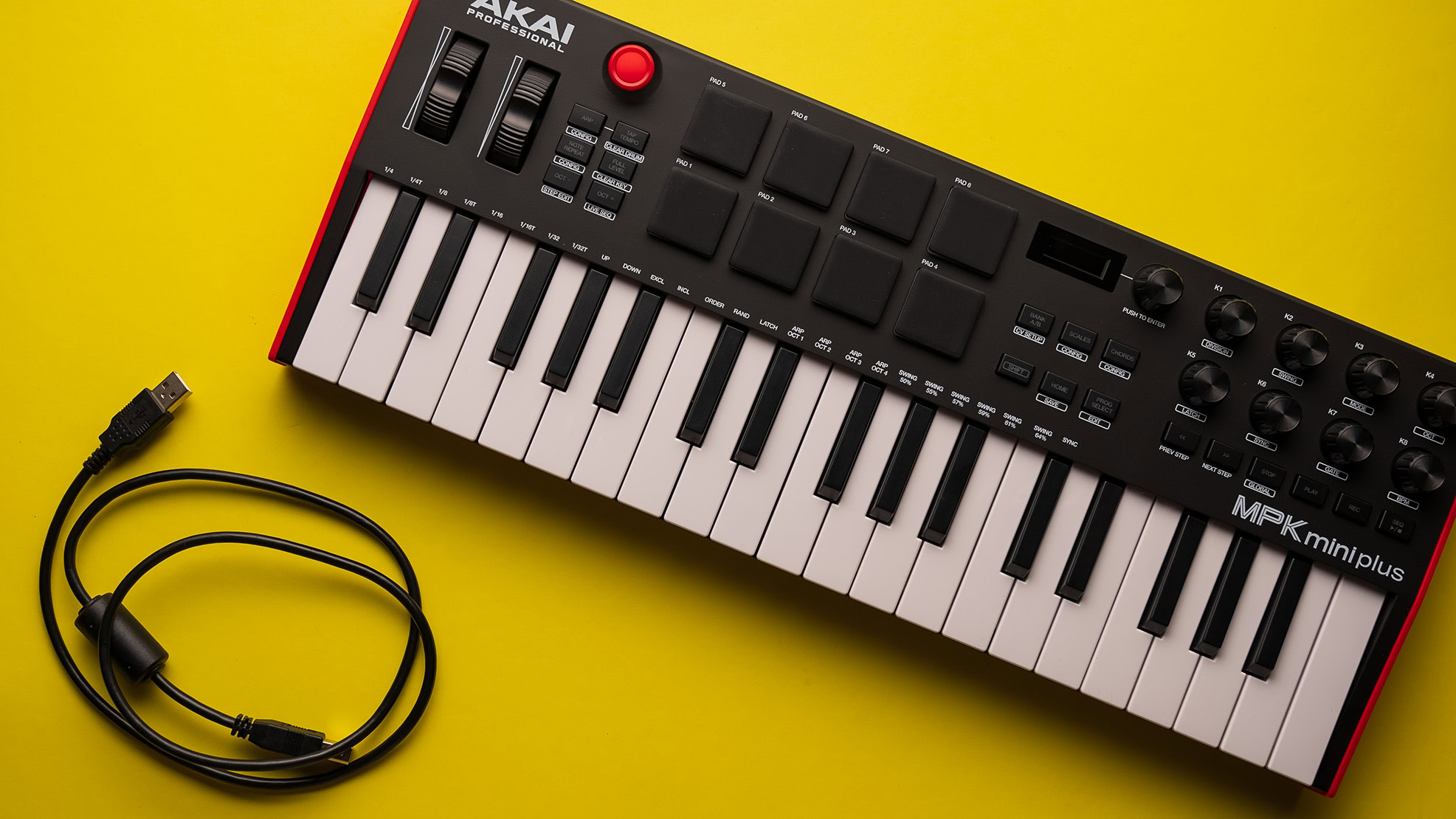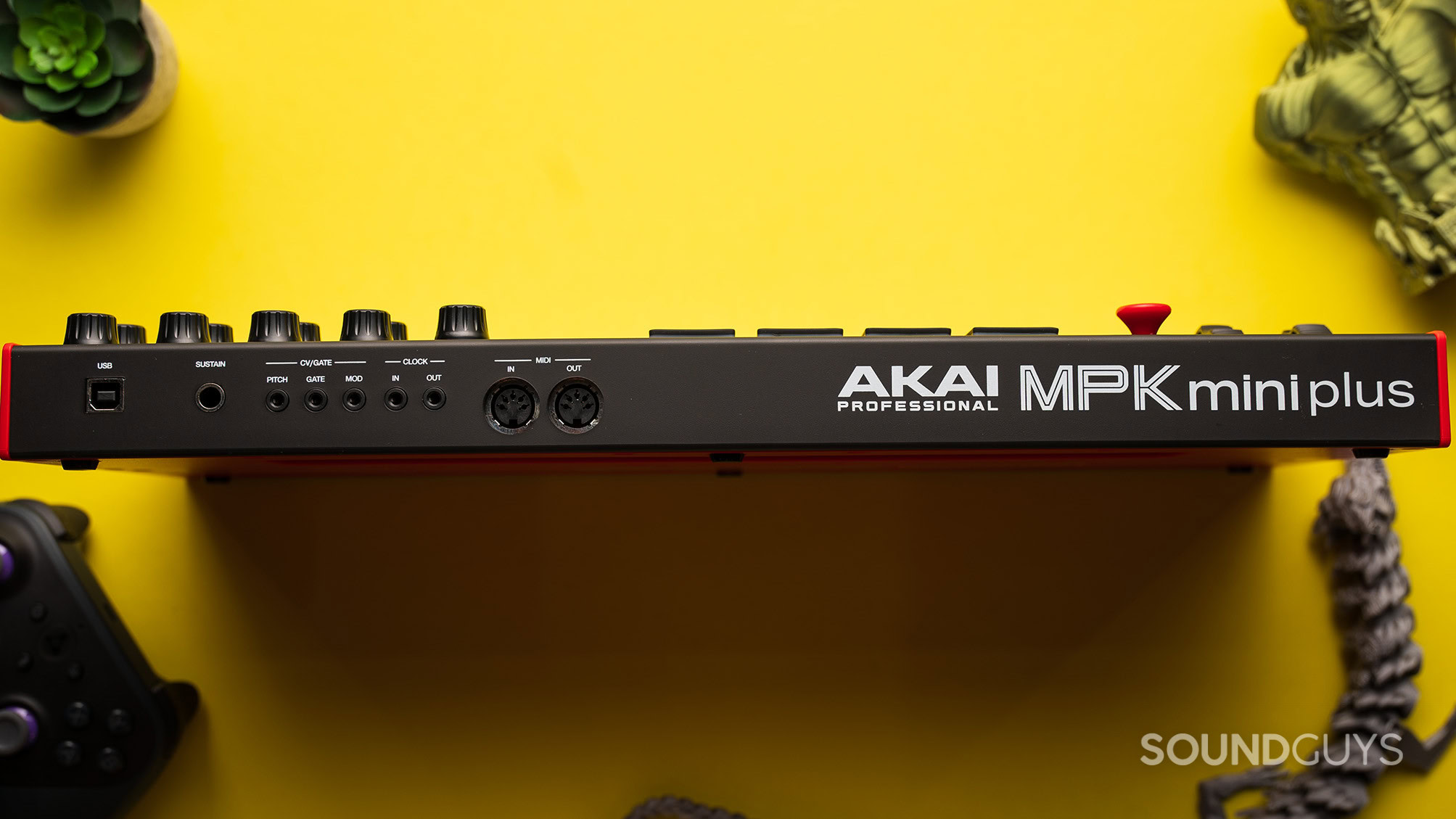All products featured are independently chosen by us. However, SoundGuys may receive a commission on orders placed through its retail links. See our ethics statement.


Akai MPK Mini Plus review: Still the best MIDI keyboard?
June 10, 2025


Akai MPK Mini Plus
When shopping around for a MIDI keyboard, most people start their search with Akai. For many, the brand has become synonymous with creating beats on the go. That said, the budget MIDI keyboard market is tightly contested, and we’ve seen lots of great options of late, such as the Novation Launchkey Mini MK4. Is the newest portable MIDI keyboard from Akai still the best option for the masses? Let’s find out in this Akai MPK Mini Plus review.
- June 10, 2025: Updated formatting.
What I like about the Akai MPK Mini Plus

In the Akai MPK lineup, the MPK Mini Plus is a step up from the extremely popular MPK Mini MK3. You get 37 keys instead of the 25 keys found on the standard MPK Mini. I find that extra octave of real estate makes it a lot easier to come up with fully fledged musical ideas, such as playing chords with the left hand and a melody with the right hand. There’s also space for a pitch bend wheel and modulation wheel, which are critical for expressive playing. That said, at only 45cm long, it’s still small enough to fit into a backpack or on a standard desk. I think this is the perfect Goldilocks zone for a portable music creation setup. Keep in mind there’s no battery or onboard library of sounds, if you want to create without the need for a computer, you’ll need to check out the Akai MPK Mini Play.
Another major upgrade for the MPK Mini Plus is the inclusion of Chords and Scales modes. For new musicians, or those with limited knowledge of music theory, these features are a game-changer. The Scales mode allows you to lock the keyboard to a specific scale (such as E Major or A minor) and then prevents you from playing any notes outside of that scale. This means you can jam away on your keyboard without worrying about hitting any “wrong” notes. As the name implies, the Chords mode enables you to play full chords by pressing a single key on the keyboard. You can either play a simple 1-3-5 triad chord or more complex chords like a Maj7, all while staying in your selected key.
There are a lot of features here for experienced music producers as well. For one, the Akai MPK Mini Plus has 5-pin MIDI DIN ports and CV/Gate outs. Combined with a step sequencer and arpeggiator, the Akai MPK Mini Plus works well in a setup with hardware synthesizers. Akai has also now partnered with Native Instruments to provide NKS support on the Akai MPK Mini Plus, which means integrated support for hundreds of virtual instruments. If you are like me and rely on Native Instruments sounds in nearly every track, this makes it easier to focus on creation rather than tweaking software controls.
What I don’t like about the Akai MPK Mini Plus

Just as with the Novation Launchkey Mini MK4, my first complaint with the Akai MPK Mini Plus is the steep learning curve to getting it setup. While you can plug and play and start using the keys right away, it takes some time to learn how to get all the features going, including the sequencer, arpeggiator, Scale modes, etc. Some functions are hidden behind a shift + button press, while for others, you need to hold the button you are configuring (such as the ARP button) and then press other buttons to tweak the settings. As someone who has used a variety of MIDI keyboards before, I still need to dig into the product manual to find all the features I’m looking for with the Akai MPK Mini Plus. Thankfully, InMusic has a full video guide tutorial series to help get you started.
While you get 37 keys with the Akai MPK Mini Plus, keep in mind that the keys are not full-size. They also aren’t weighted keys, so don’t plan on playing complex piano pieces with this keyboard. As with most affordable MIDI keyboards, the Akai MPK Mini Plus is best suited for beat-makers and electronic music producers rather than keyboard players. All you get in the box with the keyboard is a USB cable, there’s no sustain pedal or MIDI cables included. The USB cable is also an outdated USB-B to USB-A cable rather than USB-C. If you have a recent Macbook Air like me, you’ll need an adapter to connect the keyboard to your computer.
Should you buy the Akai MPK Mini Plus?

For less than $200, the Akai MPK Mini Plus is a great option to get you started making music. 37 keys provides the right mix of portability and playability, while the included Scales Mode and Chords Mode assist beginners with limited music theory knowledge. If you plan on eventually building out a home studio, the MIDI ports provide flexibility to use the keyboard down the line with a range of gear.


That said, I still prefer using the Novation Launchkey Mini 37 MK4 over the Akai MPK Mini Plus. While the features are similar, I prefer the modern design of the Launchkey Mini MK4 and the larger display that shows detailed chord scale and chord information. It also comes in at a slightly lower retail price than the Akai MPK Mini Plus.
Akai MPK Mini Plus review: FAQs
No, the Akai MPK Mini Plus does not have any onboard sounds. As a MIDI controller, it simply sends data to your computer and controls the sounds that you already have on your computer.
Yes, you can connect the Akai MPK Mini Plus Keyboard to an iPad using a USB adapter.
Yes, you can use the Akai MPK Mini Plus Keyboard with FL Studio. You can map the controls however you like within FL Studio or download the FL Studio script from Akai.
Yes, the Akai MPK Mini Plus Keyboard works with Garageband.
The Akai MPK Mini Plus comes with a variety of music software to get you started, including:
- MPC Beats
- MPC Beats Expansion Packs
- Free month of Splice sounds
- 6 months of Reason
- Native Instruments Komplete Select
No, the Akai MPK Mini Plus does not support Bluetooth